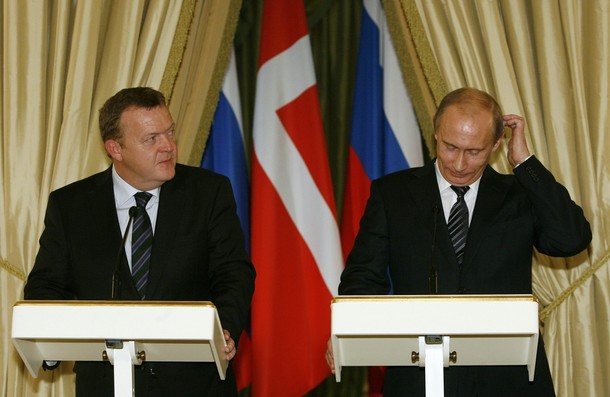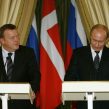
Russia Gains a Political Victory in Scandinavia with Nord Stream Approval
Publication: Eurasia Daily Monitor Volume: 6 Issue: 209
By:

Three Scandinavian governments have allowed Gazprom’s Nord Stream pipeline, from Russia to Germany, to be built on the Baltic seabed (EDM, November 10). The Finnish, Swedish, and Danish governments had procrastinated or resisted for three years and their public opinion does not welcome the Nord Stream project. Government agencies and public organizations in the three countries were conducting detailed analyses of the project’s economic, security, and environmental implications. On the environmental account, the Scandinavian governments and publics are uniquely sensitive.
The sudden approval marks a significant success for Russian policy in Northern Europe. It shows Moscow’s ability to influence decisions in individual countries, outside the framework of the European Union, of which the three countries are members. Their neighbors on the opposite Baltic shore –the E.U. members Estonia, Latvia, Lithuania, and Poland– had resisted the Nord Stream project. They continue objecting to it on the basis of energy security, ecological risk, and maritime safety considerations.
The go-ahead to a bilateral Russo-German project of such magnitude marks a setback to the E.U.’s common energy policy and political solidarity. The project reflects –and, if implemented, would reinforce– the self-described Russo-German “strategic partnership,” eroding Germany’s relationships with its allies. Berlin also lobbied the Scandinavian governments for a go-ahead to Nord Stream; but Moscow proved more effective in swaying the Scandinavian governments by introducing linkages that affected their interests.
This outcome also means a setback to Nordic regional solidarity, as individual governments ultimately made their own trade-off with Russia, on issues of interest to each. They only seemed to synchronize the timing of giving in. The situation also shows the limitations of the Council of Baltic Sea States, a consensus-based, inclusive organization that was all along unable to take a position on the Russo-German Nord Stream.
Denmark had first given its consent on October 20, ahead of Prime Minister Lars Lokke Rasmussen’s November 2 maiden visit to Moscow. Meanwhile, the Danish energy conglomerate DONG, 73 percent state-owned, has contracted with Gazprom to import gas through the Nord Stream pipeline, in small volumes initially. From Denmark’s standpoint (unlike Germany’s), this is a diversification move, to compensate for the anticipated decline in North Sea gas production. Apart from this, Russian Prime Minister Vladimir Putin agreed to cooperate with Rasmussen’s initiative on a “binding political declaration” for the post-Kyoto period, at the U.N.’s climate-change conference next month in Copenhagen (Interfax, November 2; Kommersant, November 6).
Finland gave its consent as part of a tacit quid-pro-quo whereby Russia delays the imposition of high export duties on round timber. The Russian government had announced two years ago (at first confidentially, then publicly) its intention to introduce that measure, threatening Finland’s wood-processing industry, which is a key sector of that country’s economy. High export duties on Russian round timber would either drive up production costs in Finland or compel Finnish companies to transfer production and technologies to Russian territory. Moscow has now postponed the imposition of those duties by two years (BNS, November 5).
In Sweden, the conservative government gave its approval although many on the conservative side, as well as the Social-Democrats and left-leaning groups, continue to oppose Nord Stream. According to Social-Democrat leader Mona Sahlin, citing a joint statement of opposition parties, new investments in Russian gas imports correspondingly delay investments in other forms of energy while “strengthening European dependence on Russian gas” and “giving Russia new possibilities to use its energy resources for leverage against the E.U.” (Handelsblatt, November 6; Le Monde, November 7).
Military considerations had played an important role in the Swedish debate. The Nord Stream pipeline route skirts Gotland Island, the site of top-secret military installations. Ultimately, however, the Swedish government was influenced by the Danish and Finnish positions, German lobbying, and concern for the E.U.-Russia summit, which Sweden is scheduled to host next month. As current holder of the E.U.’s presidency, the Swedish government apparently felt that it could not take a partisan side in the Nord Stream controversy. The Russian government, moreover, had hinted in October that Sweden might not be an appropriate host for a successful E.U.-Russia summit.
Nord Stream’s political success, however, ensures neither gas supplies nor financing for the project. Its outlook seems doubtful on both counts at this juncture.




